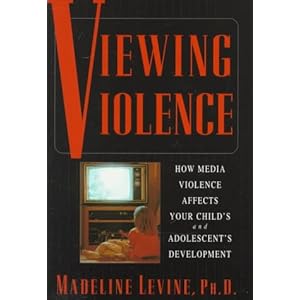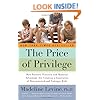We become what we perceive.
Not only do Americans perceive an astonishing amount of violence, Americans have become astonishingly violent.
Guns are a superficial tumor on a visceral cancer.

Not only do Americans perceive an astonishing amount of violence, Americans have become astonishingly violent.
Guns are a superficial tumor on a visceral cancer.

Book Description
Presents all the existing data about the detrimental effects of media violence on children in an accessible way and analyzes how parents, government, schools, and the media themselves can best react to the problem. Tour.
Editorial Reviews
From Publishers Weekly
Levine?psychotherapist, consultant to preschools and elementary schools in the San Francisco Bay area and mother of three boys?has performed a valuable service for parents here by lucidly synthesizing four decades of research on the harmful effects of media violence on children. Graphic, gratuitous depictions of violence on television and in the movies, she concludes, encourage young viewers to act more aggressively, desensitizes them to real-world violence and instills a distorted, pessimistic worldview. Media violence also makes children more restless, more fearful and less creative. TV programs present limited options for girls and glorify violent solutions for boys. Levine traces the successive stages of cognitive, emotional and moral development, from preschoolers' magical, totally egocentric outlook to teenagers often coping with confusion, apathy and hopelessness. Using this developmental framework, she sets forth guidelines to help parents decide what kids should and shouldn't watch. Of particular interest, she finds that most children's cartoons are antisocial, violent, mindnumbing and inane. An annotated list of resources includes government agencies, TV networks, advocacy groups, organizations active in media literacy.
Copyright 1996 Reed Business Information, Inc.
Copyright 1996 Reed Business Information, Inc.
From Library Journal
Psychologist Levine asserts that violence in the media damages children and marshalls 40 years of academic research to support her claim in a parent-friendly manner. Using a "development approach" based on the work of child theorists like Piaget, the author analyzes how children process the media at different stages. Provocative statistics and policy discussions abound here. We learn that American children on average watch double the amount of TV that experts recommend. The book concludes with suggestions and resources to increase the quality of the mass media and the literacy of its viewers. The inadequacy of a movie rating system that brands both Rain Man and Pulp Fiction as "R" and the promise of the V-chip are also explored. Specific recommendations for positive programming that will appeal to various groups are made, but the references will date quickly. Though repetitive in parts, this is an authoritative work on a significant social problem. Recommended for public library media collections and academic libraries supporting programs in mass media or child development.?Antoinette Bruckman, Southwest Indiana Mental Health Ctr. Lib., Evansville
Copyright 1996 Reed Business Information, Inc.
Copyright 1996 Reed Business Information, Inc.
Product Details
|
Most Helpful Customer Reviews
6 of 7 people found the following review helpful
Moms and Dads, wake up to what your kids are watching!! November 30, 1996
By A Customer
Format:Hardcover




No comments:
Post a Comment